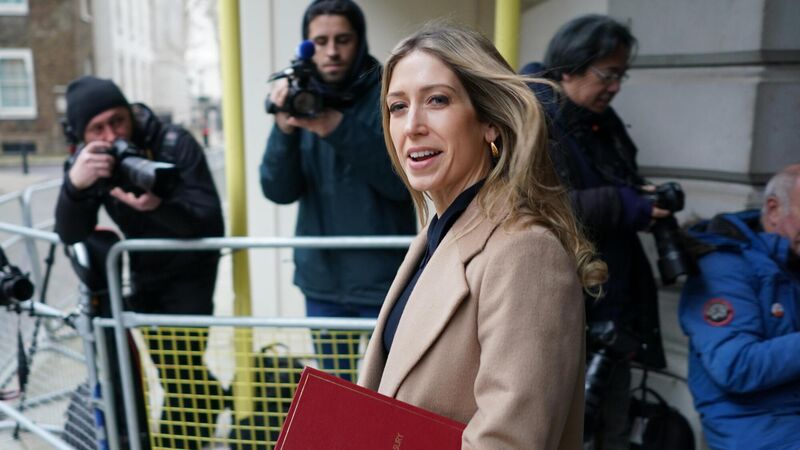Britain posts record monthly surplus, but tough picture ahead of March budget

Chief Secretary to the Treasury Laura Trott does not rule out further tax cuts in the UK budget in March.
Britain chalked up its highest-ever monthly budget surplus in January due to record seasonal tax inflows, official figures showed, although the broader picture remains tough as chancellor of the exchequer Jeremy Hunt prepares his annual budget.
The UK Office for National Statistics said Britain ran a budget surplus of £16.7bn (€19.5bn) in January, up from £7.5bn a year earlier although below economists' £18.7bn forecast in a Reuters poll.














